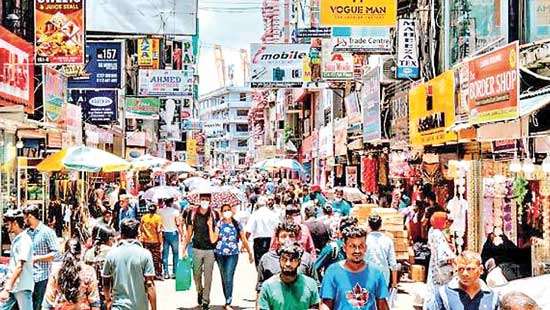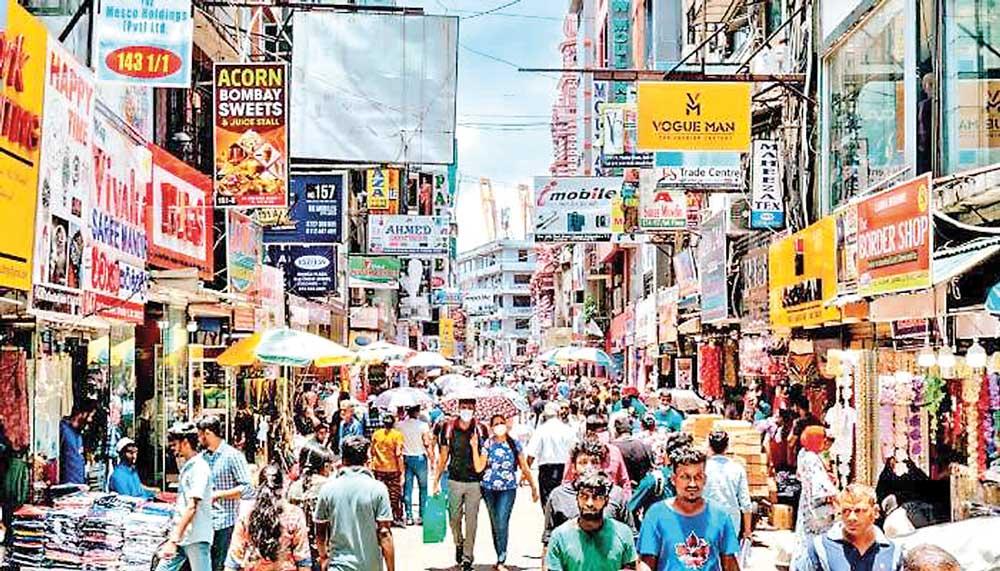Reply To:
Name - Reply Comment


Pic by Jonathan Wijayaratne/Bloomberg
While the current International Monetary Fund (IMF)-backed debt sustainability path presents no silver bullet for the economy, possible attempts to stall the reforms in the aftermath of the upcoming presidential elections are likely to result in a suspension of the IMF programme and threaten the recovery, according to the latest report by Bloomberg Intelligence.
As some presidential contenders have expressed plans to renegotiate the terms of the IMF bailout programme, if they come to power, the report highlighted that this raises uncertainty around the fate of the programme that’s now in place. “Politics pose a risk to Sri Lanka’s outlook. Elections are due on September 21. If the new government stalls the reforms, it will lead to a suspension of the IMF programme and threaten the recovery,” it stated.
It stressed that it remains vital to keep the IMF’s loan programme on track to strengthen the recovery.
Otherwise, Bloomberg Intelligence expects the country to finalise the debt-restructuring deals with its dollar bondholders by the next IMF review due sometime in the fourth quarter. Under the proposed macro-linked bond deal agreement, Sri Lanka is only expected to receive an effective haircut of 15 percent, below the initial haircut of 28 percent.
However, it acknowledged that continued fiscal consolidation, to fulfil the IMF loan demands, is likely cap the economic rebound. “Borrowing rates are coming down as the Central Bank has cut rates by 725 basis points since June 2023. This should push up credit demand. Tourism is also picking up. Even so, tight fiscal policy and weak consumer sentiment will likely cap the rebound,” it added.
Meanwhile, the Central Bank is also largely expected to hold off on cutting rates further until uncertainty around the elections due later this year clear.
“A new administration will need to work with the IMF during the third review of the loan programme towards the end of the year, which will likely keep the Central Bank from easing. We expect it to lower the standing lending and deposit rates by 125 bps to 8 percent and 7 percent, respectively, next year,” it said.
Sri Lanka’s GDP is projected to grow by of 3.2 percent in 2024, after a 2.3 percent contraction in 2023.
However, if the policymakers continue to be reactive and fail to go beyond the changes mandated by the IMF, it warned that Sri Lanka’s economic growth is likely to improve to about 3.8 percent by 2040, from the current 1.4 percent, instead of 5-6 percent growth seen in the pre-pandemic era.
“A restructuring deal between Sri Lanka and its foreign lenders, likely by year end, will put the debt on a sustainable path and meet the IMF’s bailout conditions. But it’s no silver bullet for the economy. To return to the fast growth pace of 5 percent-6 percent seen a decade or so ago.
Big strides must be made to deal with corruption and make it easier for foreign firms to do business in the country, along with other reforms. Failing that, a much slower expansion awaits,” it stated.
In particular, the country’s fast-aging population is largely expected to chip away at its potential growth after 2040, as per the latest demographic trends.
Bloomberg Intelligence sees two potential paths ahead for Sri Lanka, depending on how aggressively it pursues reform. (NF)